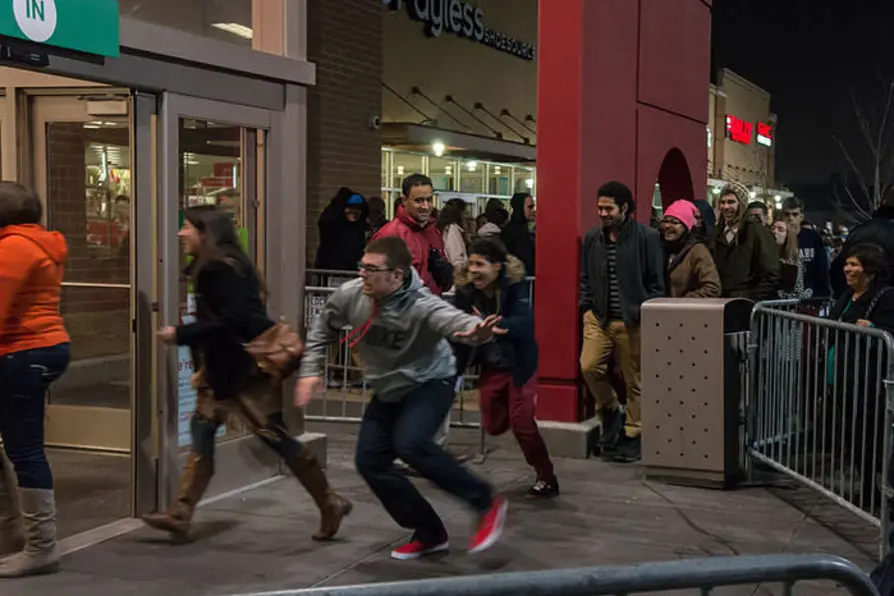RON JACOBS welcomes a timely history of the Anti Imperialist league of America, and the role that culture played in their politics
Touching base with social change
GORDON PARSONS recommends an evocative exploration of how working-class attitudes have evolved over time in Britain

 Stage managed: Black Friday, 2014
[Powhusku/Creative Commons]
Stage managed: Black Friday, 2014
[Powhusku/Creative Commons]
Me Me Me: The Search for Community in Post-war England
by Jon Lawrence
(Oxford University Press, £25)
BASED on the testimony of a wide range of interviewees from the immediate post-war period to more recent times, the social studies in Jon Lawrence’s book are drawn from contrasting areas — Bermondsey and England’s first “new town” Stevenage in the 1940s and 1950s, Luton and Cambridge in the 1960s and Tyneside and the Isle of Sheppey in the 1970s and 1980s.
One of the many illustrations in Me Me Me features a photograph of shoppers battling to secure the knock-down “bargains” on 2014’s Black Friday, a stage-managed event used by the media to show how traditional community spirit has given way to a relentlessly rising tide of selfishness and greed.
Similar stories

Ben Cowles speaks with IAN ‘TREE’ ROBINSON and ANDY DAVIES, two of the string pullers behind the Manchester Punk Festival, ahead of its 10th year show later this month

This is poetry in paint, spectacular but never spectacle for its own sake, writes JAN WOOLF

JOHN GREEN surveys the remarkable career of screenwriter Malcolm Hulke and the essential part played by his membership of the Communist Party

ANDY HEDGECOCK relishes two exhibitions that blur the boundaries between art and community engagement










